Demand for online content down under goes into overdrive
- Published

Over 300,000 Australians have been pushed to extreme measures to access the online streaming movie services those in other countries take for granted
Australians love content and they'll do whatever it takes to find it - and that often means illegally downloading or streaming.
Release dates for films and TV shows are usually delayed in Australia and neighbouring New Zealand.
This has continued with digital content lagging behind, especially when it comes to streaming services like Netflix, while prices for digital content are much higher.
"Companies are charging more because they think they can," says Erin Turner, campaigns manager at Australian consumer rights group Choice.
"There's no higher delivery cost. It's not like you have to ship digital content to Australia."
This has become known as the "Australia Tax", which was detailed in a report from Choice, showing that Aussies pay much more than others, while a second report showed that consumers still access US- or UK-based streaming services via means such as VPNs.
"Well over 300,000 households already are on the US Netflix," explains Ms Turner.
In November Netflix announced it would finally be launching in Australia and New Zealand in March, but online piracy remains a significant issue for the government and ISPs.
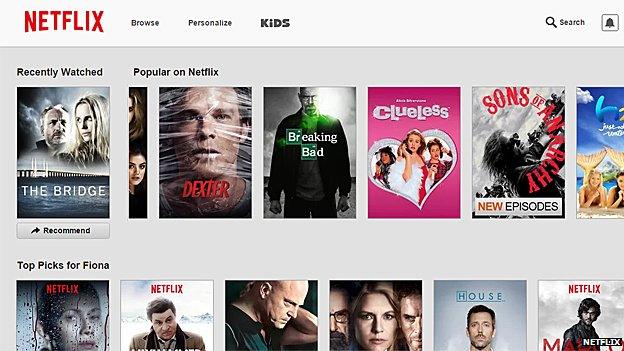
Netflix launches in Australia and New Zealand in March. Until then many will continue to access US and UK Netflix via virtual private networks (VPNs)
Piracy concerns
Piracy is not a problem unique to down under, but it has led to particularly strong pressure from rights holders on ISPs to deal with pirates and even on Netflix to block the use of VPNs.
To clarify the point, the use of VPNs is legal but for many rights holders it can be a pain when customers jump over geo-restrictions as the content is not licensed to that particular country.
While VPN use is bothersome to the studios, it remains a legitimate method of accessing content.
However at the same time, piracy and accessing content illegally is even more common. It serves as a reminder that Australians will use whatever method they can to access the content they want, even if that means pirating.
This has forced the Australian government's hand into setting an April deadline for ISPs and rights holders to set a code relating to piracy, which may include requests to block certain piracy sites.
If no arrangement can be made, the government will set one itself under the Telecommunications Act or the Copyright Act, says minister for communications Malcolm Turnbull, but he insists that any blocking is "not an internet filter".
"What we have got to make sure is the measures we employ are the most efficient, impose the least cost on the industry and consumers, and obviously are carefully monitored to make sure that they are effective," says Mr Turnbull.
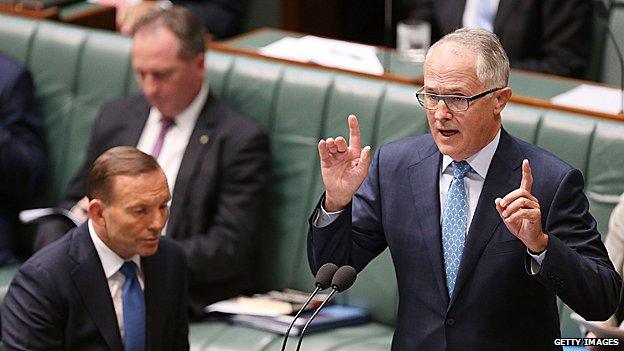
Australia's Minister for Communications Malcolm Turnbull says blocking pirate sites is "not an internet filter"
A number of ISPs say they are willing to work with rights holders on the best possible code, but the shape it will take remains unclear.
"We stand ready to work with rights holders and other ISPs to implement these measures quickly, efficiently and with minimal impact on our customers," says Jane van Beelen, executive director of regulatory affairs at Telstra, though it is unknown how the costs will affect ISPs.
Australia's Optus, which operates Virgin Mobile, says it, too, is welcoming the arrival of more services down under but could not comment on the piracy code talks.
"About 33% of Australians illegally download content, and when we asked them about the reasons behind this, the main motivators were access, affordability and timeliness," says Ms Turner.
"Most people accept that it is reasonable to pay," adds Mr Turnbull.
"Their incentive to steal stuff is obviously increased by a. the cost of buying content legitimately and b. and I think this is just as big an issue, the convenience or lack of convenience of buying stuff legitimately."
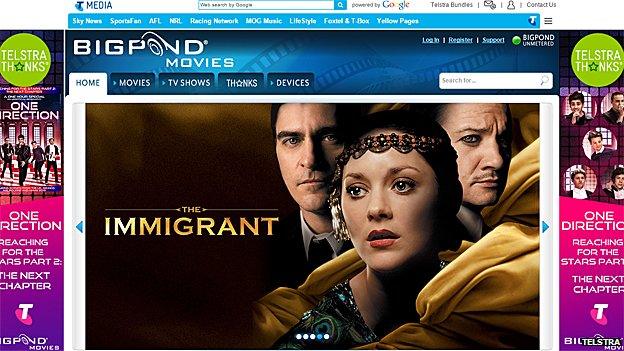
Telstra's BigPond movie service is one of the homegrown options - but choice is limited
Would the long awaited arrival of Netflix in Australia stem piracy, or at least contribute in some way if it creates timeliness and convenience?
"In terms of it stemming national issues, either access or affordability, it really depends on what's on the service," says Ms Turner.
When contacted for comment in late December, Netflix said it still has not set a price for its Australian and New Zealand services or what content will be available beyond what was mentioned in the press release.
There are home-grown options for customers too, such as Telstra's BigPond Movies, which saw five million downloads between December 2013 and December 2014, but its offering is small pickings compared to that of the US Netflix and the demand for the bigger players remains high.
Trying to keep up
In a bid to meet demand, some ISPs have taken a little more initiative. In neighbouring New Zealand, Slingshot launched Global Mode, which allows users to access typically geo-restricted content.
"Global Mode is designed to make it easy for Kiwis to bypass geo-blocking, and access content that is available in countries like the US and UK," says Taryn Hamilton, general manager of Slingshot, who says the feature has been very successful.
This is despite a number of New Zealand TV stations refusing to air ads for the service, believing it essentially amounts to piracy.
"We hope that in the long term Global Mode will become redundant, but that won't happen until Kiwis can access content on the same terms as those overseas can."
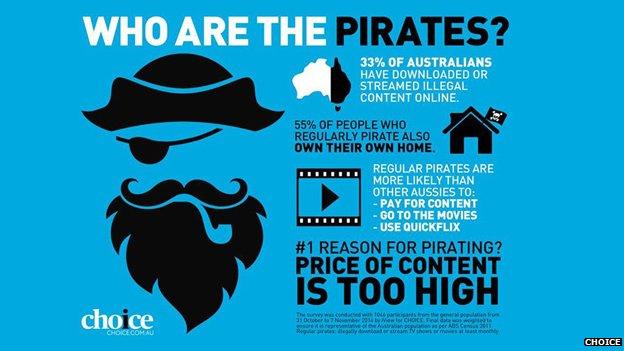
Consumer rights group Choice says Australians are paying more than consumers in many other countries to access online content
Slingshot is similar in some ways to VPN services, which mask the user's IP address and connect to a server in a different country.
One of the major selling points for VPNs is privacy, which is why a number of services, like TunnelBear, will not confirm how many Australian and NZ users it has, but say that numbers are growing.
"For privacy reasons, we don't track where our users are connecting from," says Ryan Dochuk, co-founder of TunnelBear.
"However, I can tell you we've seen tremendous growth globally over the past couple years, with over four million users in 179 countries.
"We also think location privacy is best for consumers, as well as competition among content providers on the internet."
Mr Hamilton says Global Mode, which is primarily used to access Netflix, will continue to be available after the official New Zealand launch as it can still be used to access other sites, which have content unavailable to Kiwis.
"It's old school thinking to launch content piecemeal around the world," he says, "especially when you have territories champing at the bit to get your service, and when there is an easy alternative in pirating content."
The playing field may begin to level out for content accessibility down under, but there are still many obstacles for ISPs, rights holders, and governments to address in the coming year.
- Published13 January 2015

- Published8 January 2015
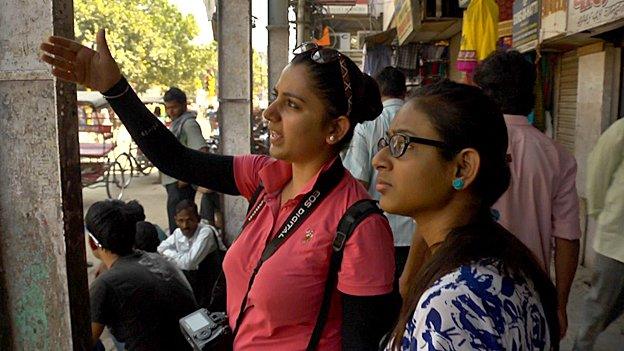
- Published6 January 2015

- Published2 January 2015
